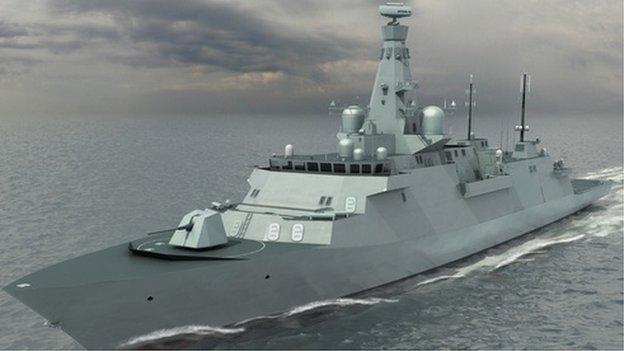BAE Systems to cut jobs in Lancashire over Typhoon plans
- Published
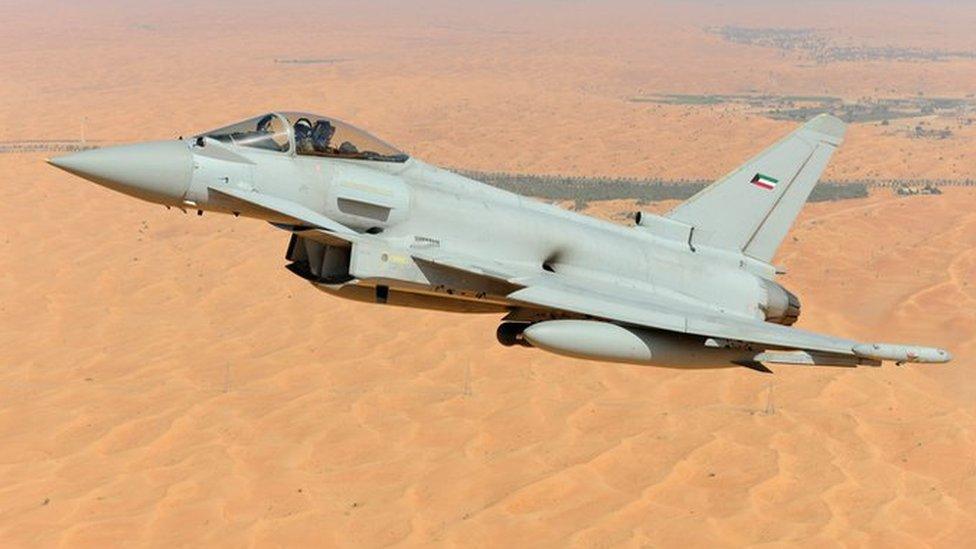
The job cuts come as BAE Systems is slowing the production of its Eurofighter Typhoon jets
Defence giant BAE Systems is to cut up to 371 jobs as the firm slows production of its Typhoon fighter jets.
The majority of job losses will be in Samlesbury, Lancashire but roles in its Typhoon final assembly production team in nearby Warton will also be impacted.
The company warned the move to slow jet production would hit its 2015 financial results.
There are 13,000 workers at both sites. The Unite union said BAE was cutting "too far, too fast".
The staff losing their jobs at Samlesbury are 237 production line workers, 97 professional or admin staff and nine executive managers.
At the Warton site, 23 miles away, 28 productions jobs will also be cut.
BAE, which also specialises in aerospace and electronics, said it would try to find opportunities elsewhere in the business to "mitigate" compulsory redundancies.
'Good prospects'
Typhoon production sales are expected to drop from about £1.3bn this year to around £1.1bn in 2016, it said.
The firm secured a deal to supply 28 Typhoon aircraft for the Kuwait Air Force in September, with deliveries from the Italian Typhoon final assembly line set to start at the end of the decade.
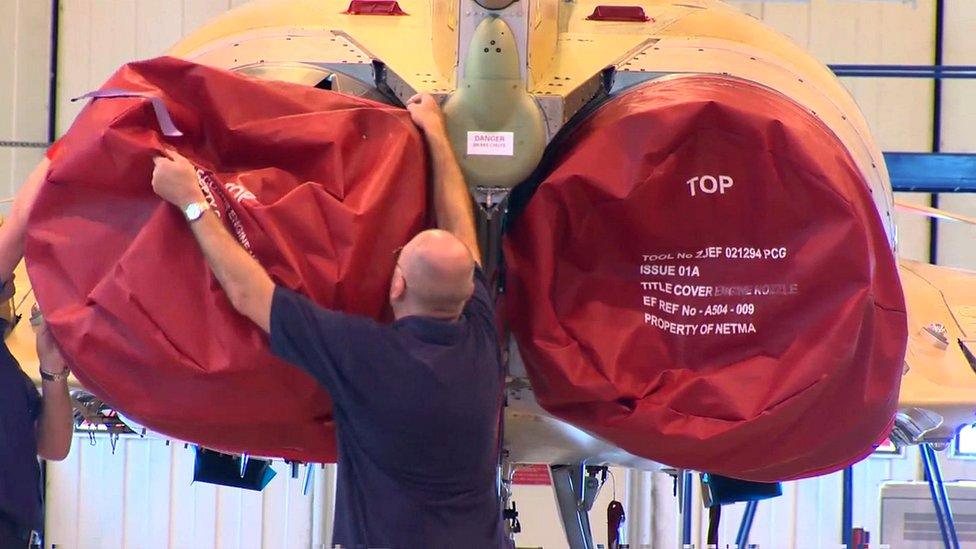
Most of the jobs will be lost at Samlesbury
It is also in talks with Saudi Arabia to try to secure further Typhoon purchases.
Ian King, BAE chief executive, said: "Overall the company is operating in an improving business environment and we continue to win new orders, with good prospects for the future.
"In the short term, action to extend the production life of Typhoon aircraft by reducing the current production rate... will impact the group's 2015 results."
Critical skills
Ian Waddell from the Unite called on the government to "act urgently" to stop the haemorrhage of skilled UK manufacturing jobs.
"It is vital that critical skills and capability are maintained by BAE Systems and their supply chain so that the ability to build the Typhoon in the UK is protected.
"Cutting too far, too fast could lead to a skills shortage for when orders pick up."
BAE slashed its earnings outlook, saying it now expected earnings per share to remain around 38p this year, having previously said they would be "marginally higher".
In May, the company announced it would retain both of its shipyards in Glasgow and make its most significant investment in them for decades.
- Published2 November 2015
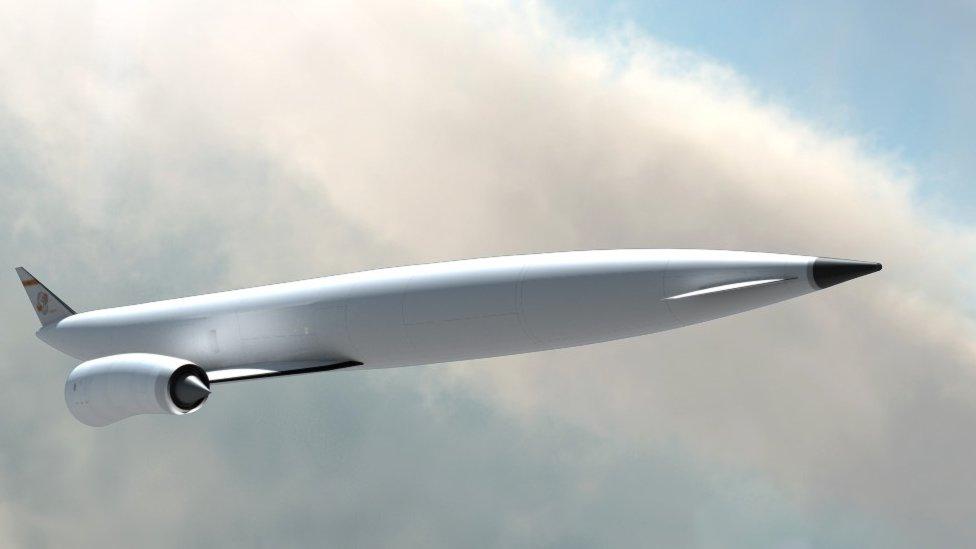
- Published13 September 2015
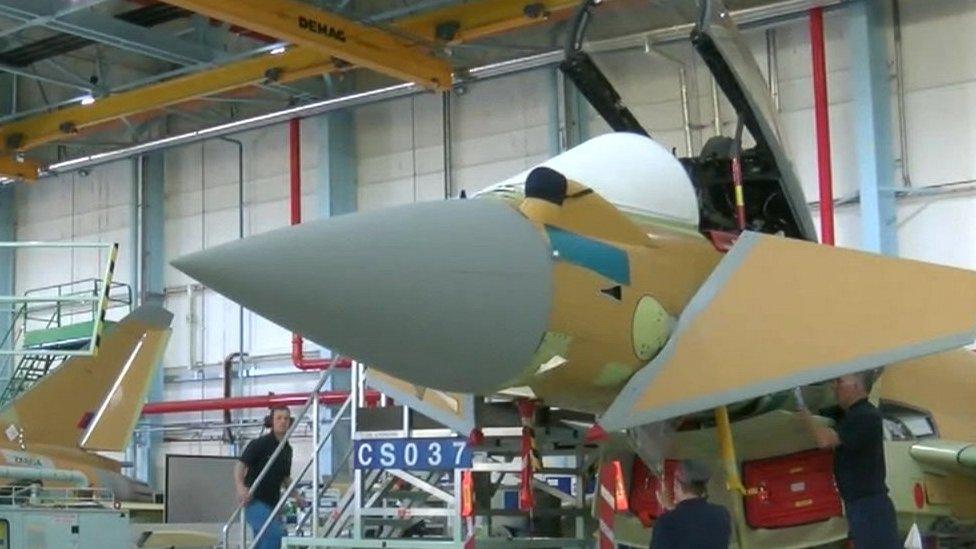
- Published21 May 2015
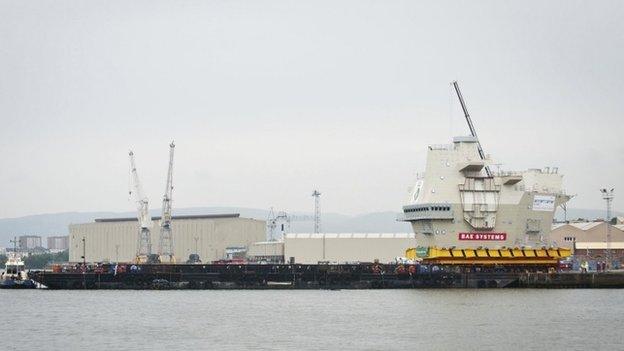
- Published19 February 2015
